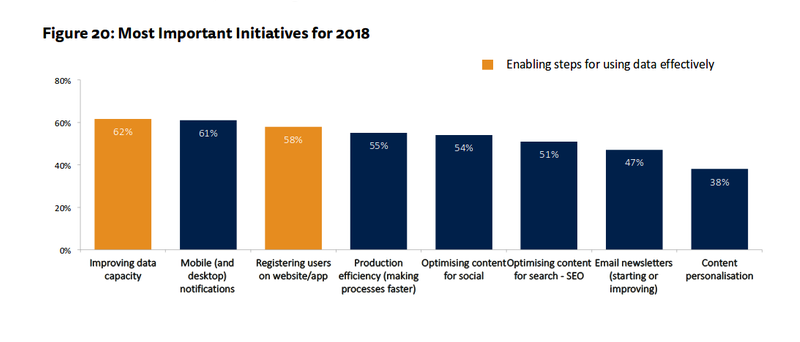What to expect for the media in 2018, according to Reuters

The Reuters Institute for the study of journalism has predicted the year 2018 in journalism with the release of its report, ‘Journalism, Media, and Technology Trends and Predictions 2018’, part of its Digital News Project 2018.
Digitisation is a key theme: according to a survey of 194 editors, CEOs and digital leaders in media, almost half of publishers are more worried about the power and influence of platforms – especially Facebook and Snapchat – than this time last year.
According to the report, however, platforms will be more wary about the reputational damage that comes with news. Reuters predicts that platforms like Facebook and Twitter will be accused of censorship frequently this year, after protectively removing content to avoid fines. Indeed, Germany’s NetzDG law and Macron’s similar proposal for France suggest penalties for platforms that do not comply with the restrictive laws, which many journalists believe pose threats for freedom of the press.
Reuters predicts that in 2018 news outlets will try to break away from their dependence on platforms. Publishers will instead put more emphasis on data, asking consumers to create accounts or profiles in order to tailor media content more personally to the consumer. Messaging services will also see a rise in initiatives, and audio will see a boom as 58% of publishers will be focusing on podcasts and content for voice-activated speakers.
Despite both these moves on the part of news outlets and platforms, Reuters predicts that increased fact-checking efforts, news literacy and transparency initiatives won’t stem the tide of misinformation (aka “fake news”) and low trust in the media.
It is yet to be seen whether these predictions will materialise, but their previous predictions have been right. This time last year, Reuters predicted that the downsides of technology would be highlighted with a backlash against platforms and algorithms, and they also predicted that platforms’ efforts to increase fact-checking would have little effect on the spread of extreme and partisan content.
Photo credit: Reuters






